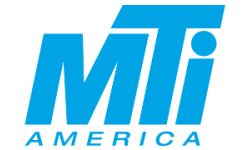As the world of work continuously evolves, the insurance industry stands at the forefront of this transformation. Workers’ compensation claims adjusting offers a stable and rewarding career path, but thriving in this tech-driven future requires a solid foundation. At this year’s WCI – Workers Compensation Institute conference, themed “Supercharge the Future,” we’ll explore the credentials you’ll need and how Artificial Intelligence (AI) is reshaping the claims adjuster role. Plus, meet iCan the robot, who brings a touch of humor to our AI discussions!
Using Licensing and Certificates to Stand Out
Building a successful career as a workers’ compensation claims adjuster involves acquiring the right education, licenses, and certifications. Here are the essentials:
- Licenses: Each state has specific licensing requirements. Research your state’s Department of Insurance website for details on obtaining a workers’ compensation adjuster license.
- Continuing Education: Keep licenses currently by securing your credits timely. Many organizations, like MTI America, offer Continuing Education credits at no charge.
- Industry Certifications: Earning certifications from organizations like the National Council on Compensation Insurance (NCCI), the Institutes, and RIMS demonstrates expertise and enhances your credibility.
- LinkedIn Learning: Online courses and certifications offered on LinkedIn Learning can further bolster your credentials. Courses in areas such as AI, risk management, claims processing, and customer service can provide valuable knowledge and are often recognized by industry professionals.
In addition to technical knowledge, developing these soft skills is crucial:
- Communication: Adjusters interact with injured workers, employers, medical providers, and legal representatives. Clear, concise, and empathetic communication is key. Consider using generative AI to help you (if allowed at your organization).
- Investigation: Uncovering the facts behind a claim requires meticulous investigation skills.
- Problem-Solving: Finding solutions that are fair to both the worker and the insurer is a core adjuster competency.
- Critical Thinking: Analyzing complex medical information and legal aspects of a case demands strong critical thinking.
The Rise of AI: The Adjuster of Tomorrow
AI is poised to transform the claims adjusting landscape, offering exciting opportunities to supercharge your future. Here’s how AI might affect your career:
- Automation of Repetitive Tasks: AI can handle data entry, claims triage, and scheduling, freeing up adjusters to focus on complex cases.
- Enhanced Fraud Detection: AI algorithms can analyze vast datasets to identify potentially fraudulent claims.
- Improved Risk Assessment: AI can help predict the potential cost and duration of a claim, allowing for better case management strategies.
At MTI, we’re seeing AI transform timeliness of medical reporting, use of AI-powered telerehabilitation, a reduction in no-shows thanks to enhanced communications streams and AI-powered scheduling and routing, and more.
The Human Touch Endures
Despite AI’s growing role, the human element in claims adjusting remains irreplaceable. Here’s why your skills will continue to be in demand:
- Negotiation and Conflict Resolution: AI cannot replicate the human ability to build rapport, negotiate settlements, and navigate conflict effectively.
- Empathy and Emotional Intelligence: Injured workers often experience emotional distress. Adjusters with empathy can provide crucial support during a challenging time.
- Ethical Decision-Making: Complex ethical considerations arise in claims adjusting. Human judgment is essential for ensuring fair and responsible outcomes.
How Companies Are Using AI Today
Leading companies are already harnessing AI to enhance their claims adjusting processes. By automating repetitive tasks, improving fraud detection, and enhancing risk assessment, AI allows adjusters to focus on higher-value activities, ultimately delivering better outcomes for all stakeholders.
The Future is a Collaboration
The future of workers’ compensation claims adjusting will be one of human-AI collaboration. By building a strong foundation of knowledge, skills, and ethics, and by understanding how to leverage AI effectively, you’ll be well-positioned to thrive.
 Join us at the WCI – Workers Compensation Institute conference to see how you can supercharge your future in the workers’ compensation industry. And don’t miss meeting iCan the robot, who, with his incredible sense of humor, will put a smile on your face while we navigate the exciting changes AI brings!
Join us at the WCI – Workers Compensation Institute conference to see how you can supercharge your future in the workers’ compensation industry. And don’t miss meeting iCan the robot, who, with his incredible sense of humor, will put a smile on your face while we navigate the exciting changes AI brings!